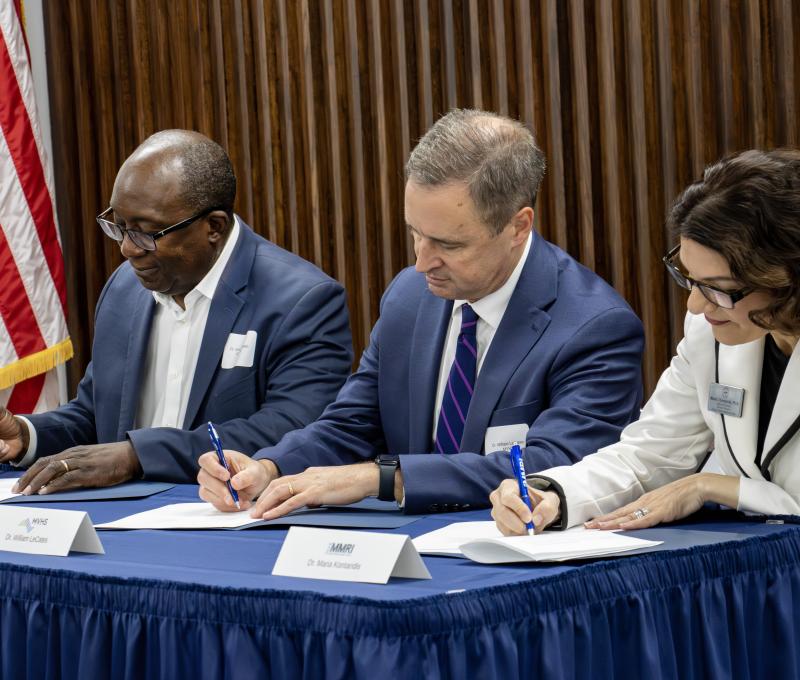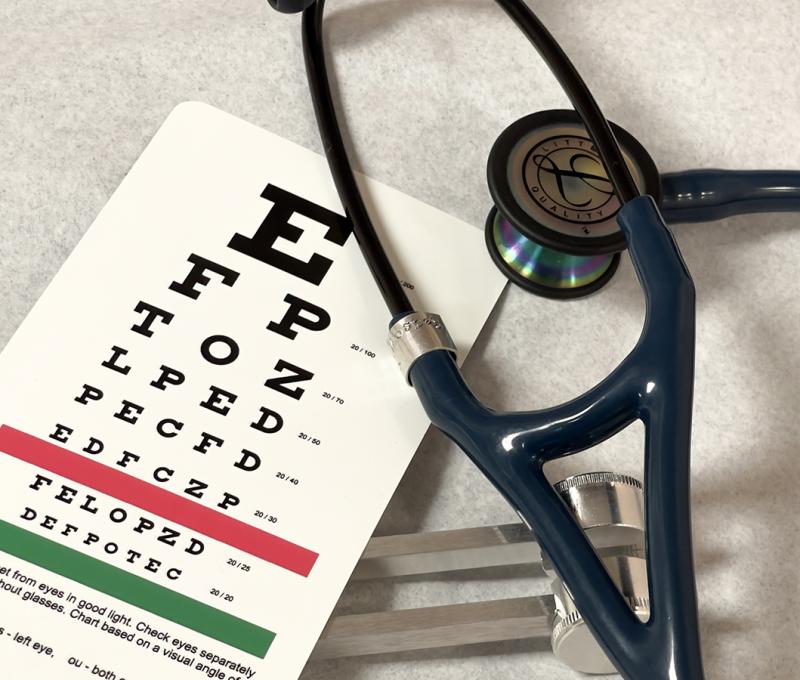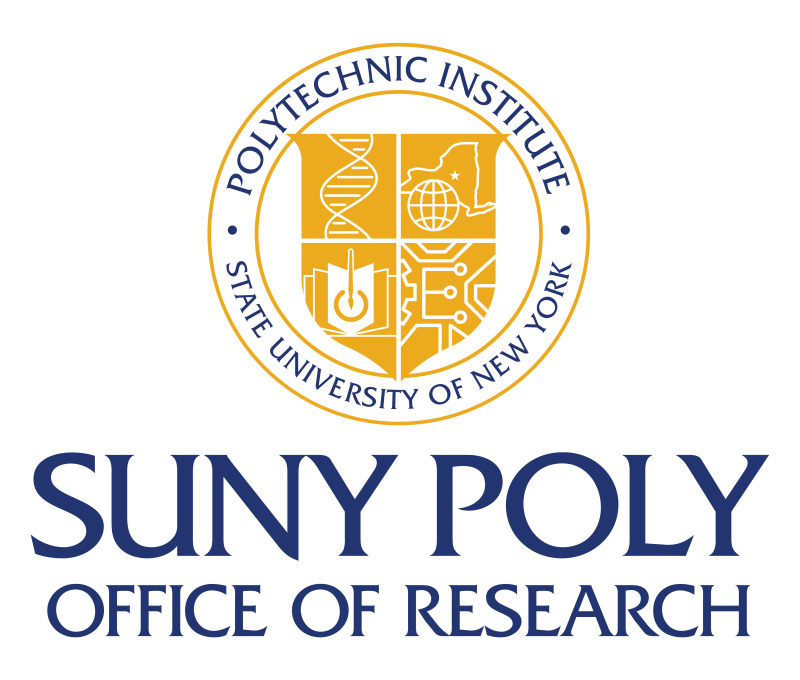News Release: SUNY Poly Professor Receives $450K National Heart, Lung, and Blood Institute (NHLBI) Award to Identify New Therapies to Prevent Heart Failure

For Release: Immediate – July 29, 2020
Contact: Steve Ference, Director of University Communications | (518) 429-7742 | sference@sunypoly.edu
Grant is Part of Collaboration with Montreal Heart Institute and Cold Spring Harbor Laboratory Supporting Research to Improve Understanding of Molecular Development of Cardiac Hypertrophy
ALBANY, NY – SUNY Polytechnic Institute (SUNY Poly) announced today that Associate Professor of Nanobioscience Dr. Ben Boivin will receive $450,000 in funding from the National Heart, Lung, and Blood Institute (NHLBI) of the National Institutes of Health (NIH). His team, in partnership with researchers from Montreal Heart Institute and Cold Spring Harbor Laboratory, will develop therapeutic strategies to regulate protein dephosphorylation by Protein Tyrosine Phosphatases, a process that, when left unregulated in cardiac pathologies, can cause cardiac hypertrophy and, eventually, heart failure and mortality.
“I join the SUNY Poly community in congratulating Dr. Boivin on his award, which showcases SUNY Poly’s ability to engage in meaningful areas of research to preserve the health of individuals who are at risk for developing heart disease,” said SUNY Poly Interim President Dr. Grace Wang. “SUNY Poly is leading the way in advancing fundamental biomedical understanding that can eventually be translated into therapeutics, which could improve lives not only in New York State, but also across the U.S and the world. This grant presents an exciting opportunity for a number of SUNY Poly students.”
The three-year, competitive grant will allow Dr. Boivin to study cardiac hypertrophy, which occurs when cardiomyocytes are exposed to stresses, including mechanical stress and neurohormonal stimulation. In response to these stresses, changes in signal transduction and gene expression occur, eventually leading to the progression of heart failure. Dr. Boivin’s team aims to study whether maintaining the function of a specific Protein Tyrosine Phosphatase—named PTP1B—can help alter signaling by thyroid hormones and prevent or treat patients suffering from cardiac hypertrophy and heart failure.
“Understanding how PTP1B regulates gene silencing and thyroid hormone-induced hypertrophy will fundamentally improve our understanding of the function of oxidants that can turn off phosphatases in cardiac hypertrophy and lead to novel strategies of therapeutic intervention in heart failure,” Dr. Boivin said. “I am excited to work with long-standing collaborators from both Montreal Heart Institute and Cold Spring Harbor Laboratory on this study, as this gives us access to state-of-the-art technology in cardiovascular monitoring and mass spectrometry.”
Both undergraduate and graduate students will assist with the research, which will be based at the SUNY Poly Albany campus.
####################
About SUNY Polytechnic Institute (SUNY Poly)
SUNY Poly is New York’s globally recognized, high-tech educational ecosystem. SUNY Poly offers undergraduate and graduate degrees in the emerging disciplines of nanoscience and nanoengineering, as well as cutting-edge nanobioscience programs at its Albany campus, and undergraduate and graduate degrees in technology, including engineering, cybersecurity, computer science, and the engineering technologies; professional studies, including business, communication, and nursing; and arts and sciences, including natural sciences, mathematics, humanities, and social sciences at its Utica campus; thriving athletic, recreational, and cultural programs, events, and activities complement the campus experience. As the world’s most advanced, university-driven research enterprise, SUNY Poly boasts billions of dollars in high-tech investments and hundreds of corporate partners since its inception. For information visit www.sunypoly.edu.








